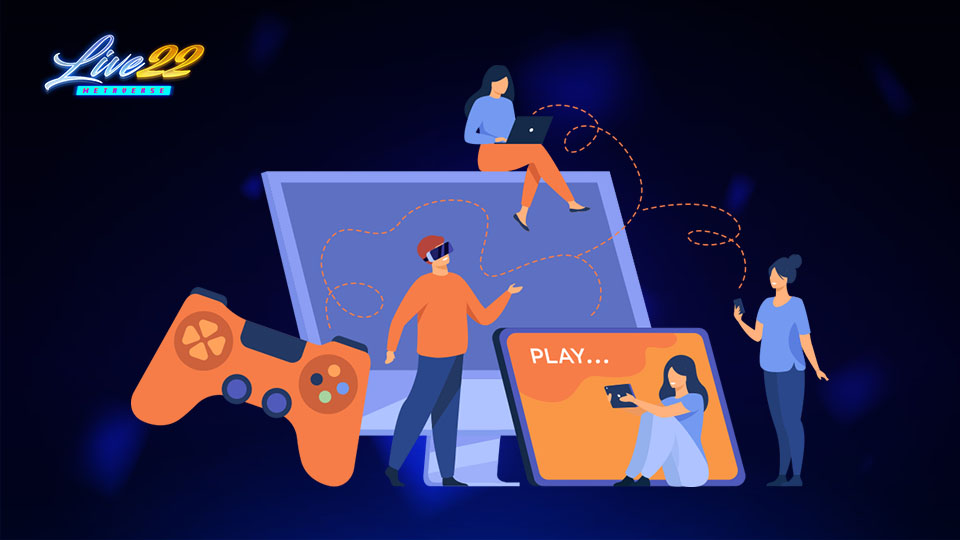Miten Pelaaminen ja iGaming Eroavat
28. Elokuuta 2023
Ilmaisujen “pelaaminen” ja “iGaming” suosio on kasvanut muutaman viime vuoden aikana, ja niitä käytetään joskus vaihtokelpoisina. Molempia nimiä käytetään yleisesti viittaamaan viihde- ja digitaaliteknologiateollisuuteen, mutta on tärkeää huomata, että nämä molemmat termit eroavat muutamalla tavalla.
Pelaaminen vs iGaming
Pelaaminen laajempana käsitteenä sisältää interaktiivista viihdettä, joka sisältää tietokoneiden käytön tai videopelien pelaamisen. Se kattaa laajan valikoiman laitteita, mukaan lukien konsolit, älypuhelimet ja jopa perinteiset lautapelit. Pelaaminen tarjoaa elämyksiä kaikenikäisille ja kaiken ikäisille pelaajille riippumatta siitä, haluavatko he pelata verkossa ystäviään vastaan tai lähteä yksintehtävälle.
iGaming tarkoittaa yksinomaan sitä pelisegmenttiä, joka sisältää uhkapelaamisen tai vedonlyönnin uhkapeleissä Internetin kautta. Se sisältää online-uhkapelitoimintaa, kuten pokeria, urheiluvedonlyöntiä, online-arpajaisia ja kasinopelejä. iGamingin saavutettavuuden ja mahdollisuuden pelata ja panostaa oikealla rahalla mukavasti kotoa käsin, iGaming on kokenut huomattavan kasvun.
Transaktiomenetelmät
Rahoitustapahtumiin osallistuminen on yksi tärkeä ero pelaamisen ja iGamingin välillä. iGaming sisältää uhkapelaamisen, jossa pelaajat voivat voittaa tai hävitä rahaa, kun taas pelaaminen keskittyy viihteeseen ja mukaansatempaaviin kokemuksiin. Live22 säilyttää maineensa iGaming-alan johtavana yrityksenä, koska se on sitoutunut innovaatioihin ja kuluttajien tyytyväisyyteen.
Reilun Pelin Säännöt
Verrattuna iGamingiin, pelaamiseen sovelletaan vähemmän tiukkoja sääntöjä, etenkin kun on kyse ei-uhkapelaavista videopeleistä. Reilun pelin, vastuullisen pelaamisen ja pelaajatietojen turvallisuuden varmistamiseksi iGaming-palveluntarjoajien on noudatettava lisenssistandardeja. Live22 asettaa etusijalle pelaajien turvallisuuden ja reilun pelin tiukkojen sääntelyohjeiden avulla.
Sosiaalinen Pelaaminen
Lisäksi iGamingilla ja pelaamisella on erilaisia sosiaalisia puolia. Moninpelivuorovaikutus korostuu usein peleissä, pelattiinpa niitä sitten paikallisesti tai kaikkialla maailmassa. Sitä vastoin iGaming keskittyy todennäköisemmin henkilökohtaisiin kokemuksiin. Live22 on johtava iGaming-palveluntarjoaja, joka tarjoaa palveluita pelaajien tarpeisiin. Live22 tarjoaa huippuluokan pelejä, kuten kolikkopelejä, pöytäpelejä ja minipelejä, keskittyen vahvasti mukaansatempaavan pelikokemuksen luomiseen.
Tärkeimmät Takeaways
Pelaaminen ja iGaming eroavat toisistaan tarkoituksensa, taloudellisten seuraustensa, sääntelykehysten ja sosiaalisten tekijöiden suhteen. Yritysten omistajille, jotka ovat kiinnostuneet pelaamiseen tai iGamingiin, näiden erojen ymmärtäminen on ratkaisevan tärkeää, koska se vaikuttaa heidän odotuksiinsa ja kokemuksiinsa kullakin alalla.

